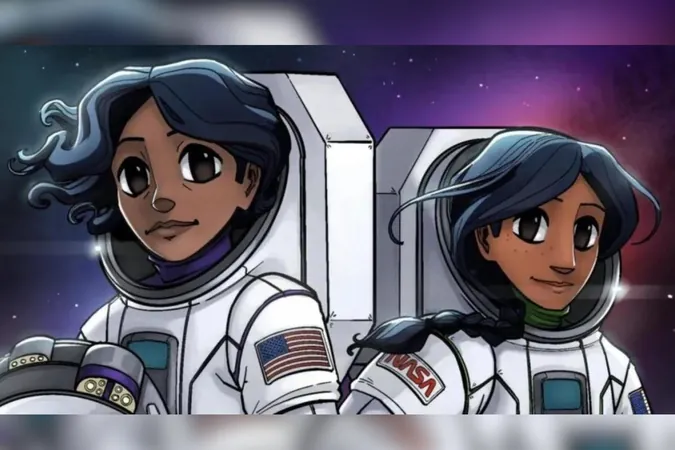
NASA Erases Graphic Novels Featuring Iconic Female Astronauts Amid Controversial Policy Shift
2025-03-30
Author: Chun
In a surprising move that has raised eyebrows among advocates for diversity and representation, NASA has removed two graphic novels highlighting female astronauts from its official website. This decision appears to be aligned with the Trump administration's ongoing stance against Diversity, Equity, and Inclusion (DEI) initiatives.
DEI policies aim to support fair treatment and opportunities for individuals from various backgrounds, fostering a more inclusive workplace and societal environment. However, the Trump administration has been openly critical of these programs, labelling them "illegal and immoral" on the first day of Trump's second term in office. They emphasized a commitment to serving "every person with equal dignity and respect," a motto that seems to contradict the removal of works that celebrate diversity.
The graphic novels in question featured an imaginative protagonist named Callie Rodriguez, who represents the fictional first woman to walk on the Moon. Their titles, “First Woman: NASA’s Promise for Humanity” and “First Woman: Expanding Our Universe,” were available online for years, providing both inspiration and representation to many aspiring young female scientists and astronauts.
Reports by Keith Cowing from NASA Watch highlight that the two novels have mysteriously vanished without a trace from the public domain, leaving only announcements and past releases in their wake. The main landing page dedicated to Callie Rodriguez has now been replaced with a frustrating 404 error, indicating that the content is no longer accessible. Attempts to seek clarification from NASA’s Press Secretary, Bethany Stevens, have gone unanswered.
Adding to this alarming trend, earlier in the year, NASA indicated plans to cut back on diversity programs within the agency. More recently, employees were informed they could no longer include their pronouns in professional contexts, such as email signatures and Microsoft Outlook profiles. These actions have sparked concern among advocates about the agency’s commitment to fostering an inclusive environment.
As the conversation about representation in STEM fields continues to evolve, this decision raises critical questions about NASA’s future direction and its dedication to diversity in the space exploration landscape. With women's representation in science and technology still a pressing issue, the erasure of these graphic novels signals a troubling precedent that may impact the aspirations of young women interested in following in the footsteps of pioneering astronauts.
This scenario serves as a stark reminder of the ongoing cultural debates surrounding diversity initiatives in institutions traditionally seen as progressive. Will NASA reverse this course, or will this be a sign of a more significant shift in the agency's priorities going forward? The eyes of the world are watching closely.


 Brasil (PT)
Brasil (PT)
 Canada (EN)
Canada (EN)
 Chile (ES)
Chile (ES)
 Česko (CS)
Česko (CS)
 대한민국 (KO)
대한민국 (KO)
 España (ES)
España (ES)
 France (FR)
France (FR)
 Hong Kong (EN)
Hong Kong (EN)
 Italia (IT)
Italia (IT)
 日本 (JA)
日本 (JA)
 Magyarország (HU)
Magyarország (HU)
 Norge (NO)
Norge (NO)
 Polska (PL)
Polska (PL)
 Schweiz (DE)
Schweiz (DE)
 Singapore (EN)
Singapore (EN)
 Sverige (SV)
Sverige (SV)
 Suomi (FI)
Suomi (FI)
 Türkiye (TR)
Türkiye (TR)
 الإمارات العربية المتحدة (AR)
الإمارات العربية المتحدة (AR)